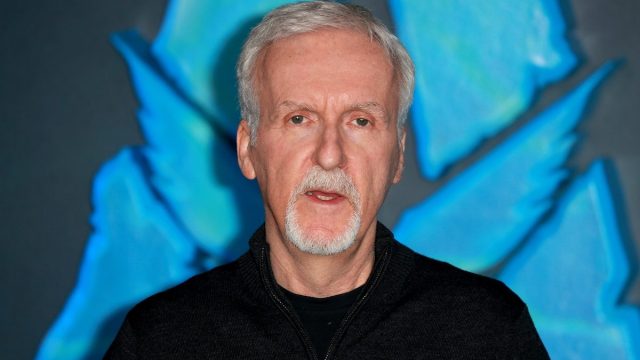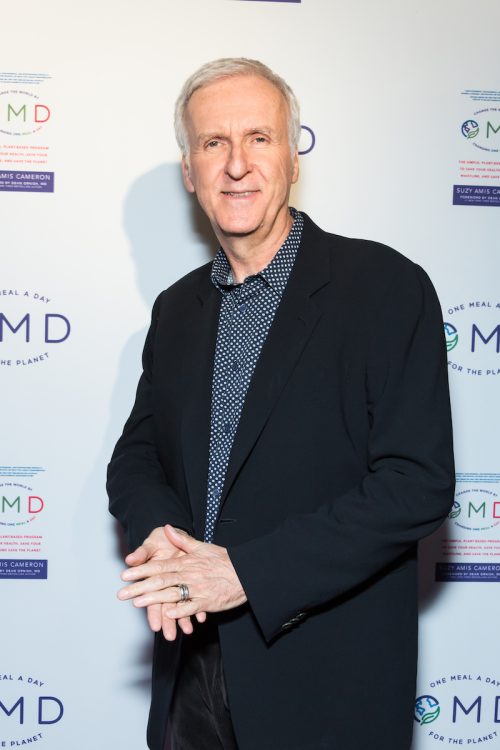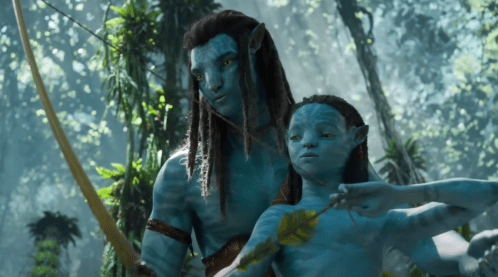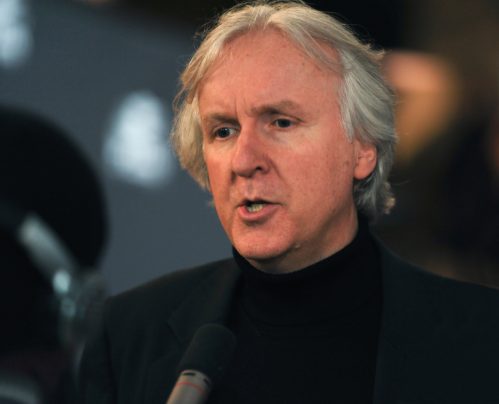James Cameron Is Under Fire for Past Comments—Why Some Are Boycotting "Avatar"
A tweet calling the movie series "racist" is racking up thousands of likes.

Thirteen years after the release of the original film, the Avatar sequel, Avatar: The Way of Water, premiered on Dec. 16. The movie made $435 million worldwide in its first weekend, but not everyone is itching to go see it. On Twitter, one call to boycott the film has over 37K likes as of the publication of this story.
The tweet claims that the film series is racist and culturally appropriates from indigenous people of North America. It also points to a 2010 quote from writer-director James Cameron about the Lakota people and how their experience inspired the Avatar screenplay. Read on to find out more.
READ THIS NEXT: New Hit Netflix Movie Slammed as "Propaganda" by Outraged Viewers.
Avatar is about colonization.
It's no secret that the Avatar movies are about colonization and that they pull from the European colonization of North American. In Avatar, humans are attempting to colonize a planet, and they interact with its indigenous habitants, the Na'vi. In the first film, a white man named Jake Sully (Sam Worthington) falls in love with a Na'vi female named Neytiri (Zoe Saldaña). The Na'vi are able to successfully fight off humans, but Jake remains as the Na'vi version of himself (his avatar) for good and becomes a chief.
A tweet calling for a boycott is getting attention.
On Dec. 18, Twitter user @asdza_tlehonaei posted, "Do NOT watch Avatar: The Way of Water Join Natives & other Indigenous groups around the world in boycotting this horrible & racist film. Our cultures were appropriated in a harmful manner to satisfy some [white] man's savior complex. No more Blueface! Lakota people are powerful!"
The user went on to list sci-fi movies and books by indigenous creators that potential viewers could support instead.
For more celebrity news delivered right to your inbox, sign up for our daily newsletter.
Fans are defending the movies.
The response to the tweet has been mixed, with some social media users supporting the boycott and others defending the Avatar movies. One commenter wrote, "as someone who comes from an indigenous people it's literally a fiction movie about blue cat people and robots."
Another person wrote, "The entire point of the films are to comment on the horrific destruction of native cultures because of colonization, and the destruction of land because of greed." To this, someone else responded, "You missed the fact that a white man was the savior and hero of the films," which launched further discussion of whether Jake Sully was meant to be a hero or simply someone who learned a lesson of acceptance.
An old interview of Cameron's is circulating.

A quote Cameron gave that references the Lakota people has been circulating online, including in the original post by @asdza_tlehonaei. In 2010, Cameron spoke to The Guardian about supporting the Xingu people of Brazil's Amazon in their fight to stop the planned construction of a large hydroelectric dam. The director called the conflict "a real-life Avatar confrontation."
At the time, Cameron said that what he witnessed in Brazil made him reflect on North American history and that this history was a "driving force" in his writing of Avatar. One excerpt in particular is coming up in the backlash to the long-awaited sequel.
"I felt like I was 130 years back in time watching what the Lakota Sioux might have been saying at a point when they were being pushed and they were being killed and they were being asked to displace and they were being given some form of compensation," Cameron said. "This was a driving force for me in the writing of Avatar— I couldn't help but think that if [the Lakota Sioux] had had a time-window and they could see the future… and they could see their kids committing suicide at the highest suicide rates in the nation… because they were hopeless and they were a dead-end society—which is what is happening now—they would have fought a lot harder."
Some found his words offensive.

A tweet with over 22K likes reads, "Yeah, James Cameron basically saying Native communities might have fought harder against colonization if they knew the suicide rates of Native youth today is just not cool on every single level so no, I will not be seeing his movies or supporting him ever." Another popular tweet that links to the Guardian article reads, "Natives been telling ya'll James Cameron's Avatar is racist and creepy as hell. The way he talks about the Lakota in this article is absolutely horrible."
Cameron has explicitly confirmed that the Na'vi are based on Indigenous Americans.

In 2012, Business Insider published excerpts from a legal document Cameron filed in response to a lawsuit alleging he stole the idea for the movie. "Avatar is a science fiction retelling of the history of North and South America in the early colonial period," reads one section. "Avatar very pointedly made reference to the colonial period in the Americas, with all its conflict and bloodshed between the military aggressors from Europe and the indigenous peoples. Europe equals Earth. The native Americans are the Na'vi. It's not meant to be subtle."
As ABC News reported in 2010, the director denied that the first movie was racist in a statement to the Associated Press. He said that the film "asks us to open our eyes and truly see others, respecting them even though they are different, in the hope that we may find a way to prevent conflict and live more harmoniously on this world. I hardly think that is a racist message."
Best Life has reached out to Cameron and Disney for comment on the current backlash but has not yet received a response.





















